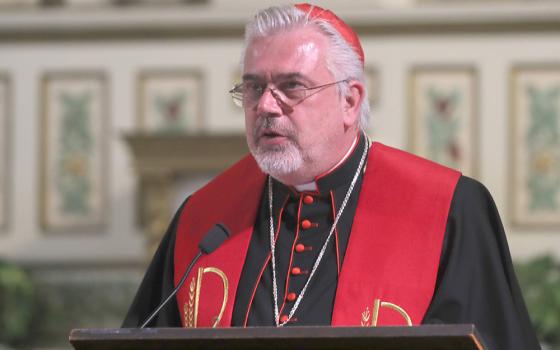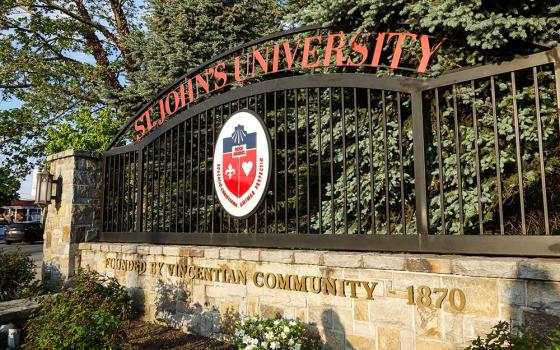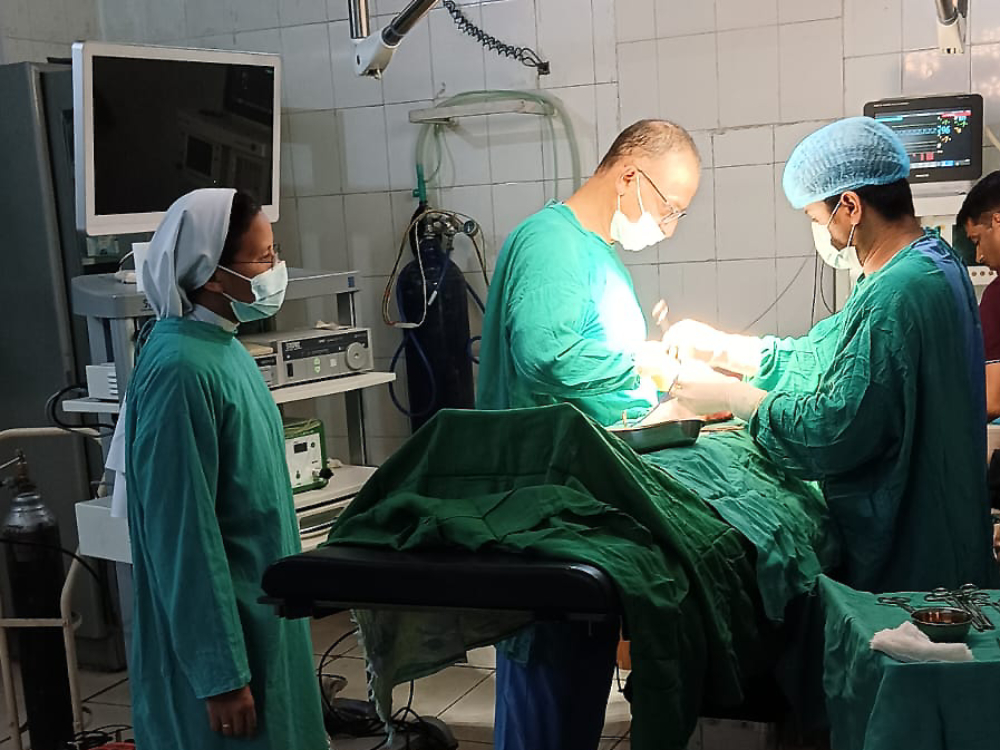
Sr. Lilly Thomas of the Sisters of Charity of Jesus and Mary assists in a surgery at St. Joseph Community Hospital in the Jammu-Srinagar Diocese, India. (Umar Manzoor Shah)
On a May morning, the people of Samba, a fragile hamlet nestled along the tense Line of Control, the de facto border between India and Pakistan, woke up to a sky filled with fighter jets.
Mortars thudded in the distance, artillery echoed off the Pir Panjal mountain range and the entire frontier zone shivered under the weight of a war that the world had feared for decades: India and Pakistan had entered into full-scale conflict.
As thousands of villagers rushed to safer ground, three Catholic nuns, dressed in simple white habits, decided to stay.
They work as nurses at St. Joseph Community Hospital, a modest two-story building operated by the Jammu-Srinagar Diocese, India, the region's only charitable health care facility for the poor.
Sr. Annie Manickathan, the oldest of the three, told Global Sisters Report: "If we leave, who will be with them? God sent us here. We cannot go."
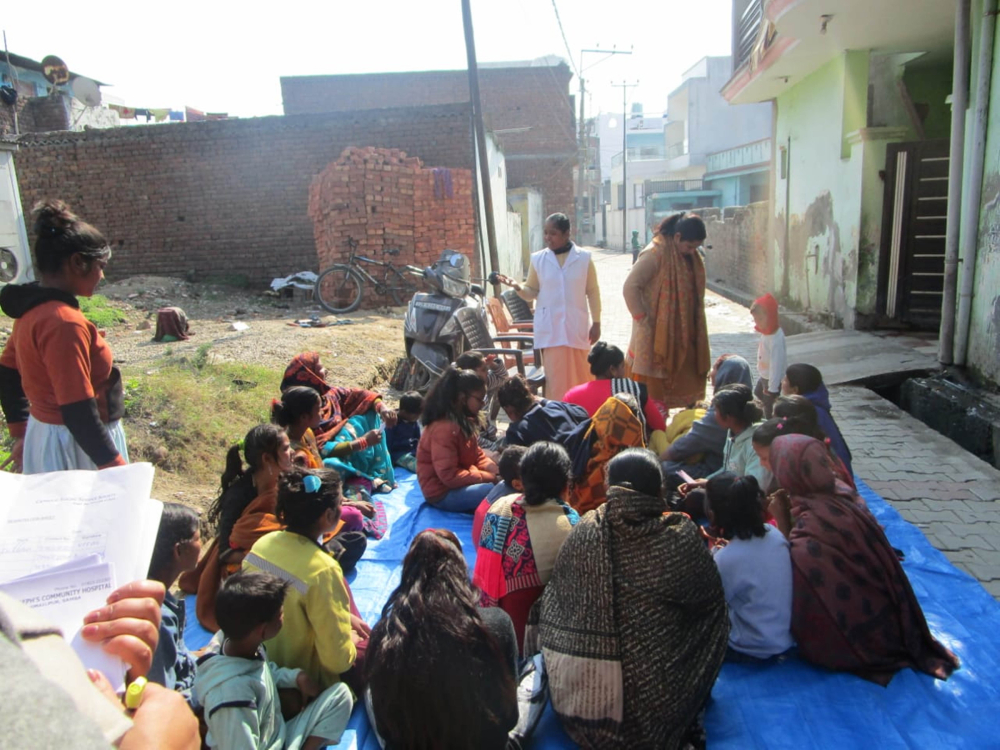
Sr. Annie Manickathan of the Sisters of Charity of Jesus and Mary during a medical awareness camp in a frontier hamlet of Samba, India. (Umar Manzoor Shah)
Paint peels in some spots of St. Joseph Community Hospital, and its doors squeak when opened or closed, signaling signs of financial trouble faced by management.
Manickathan said the hospital's six departments — gynecology, medicine, dental, orthopedics, physiotherapy and general surgery — are managed with "frugal resources and extraordinary faith."
It doesn't look flashy, but to the villagers, the facility is their final refuge before death.
Sometimes, the people who come here are very poor — migrants, daily-wage workers, widows. "Some don't even have five rupees. For such people, we give medicines free," she said.
"Many are regulars, lonely, sick and abandoned. When they get better, they smile. When they bless us with tears in their eyes … that is enough. That is what keeps us going," Manickathan told GSR.
"I never thought of going back," she said, her voice steady despite being more than 3,250 km away from her home state of Kerala in this mission area.
She has been away from home for decades. From Patiala in Punjab to New Delhi, the national capital, and Samba on the border, "it has always been service."
Ever since she joined the Sisters of Charity of Jesus and Mary in 1983, during her late teens, "I only wanted one thing: to offer myself to the service of others," she said.
A story she often recalls is about a woman brought to the hospital years ago with her leg twisted due to a complicated orthopedic condition. Larger hospitals had refused to operate, saying it was "too risky" to perform surgery on her.
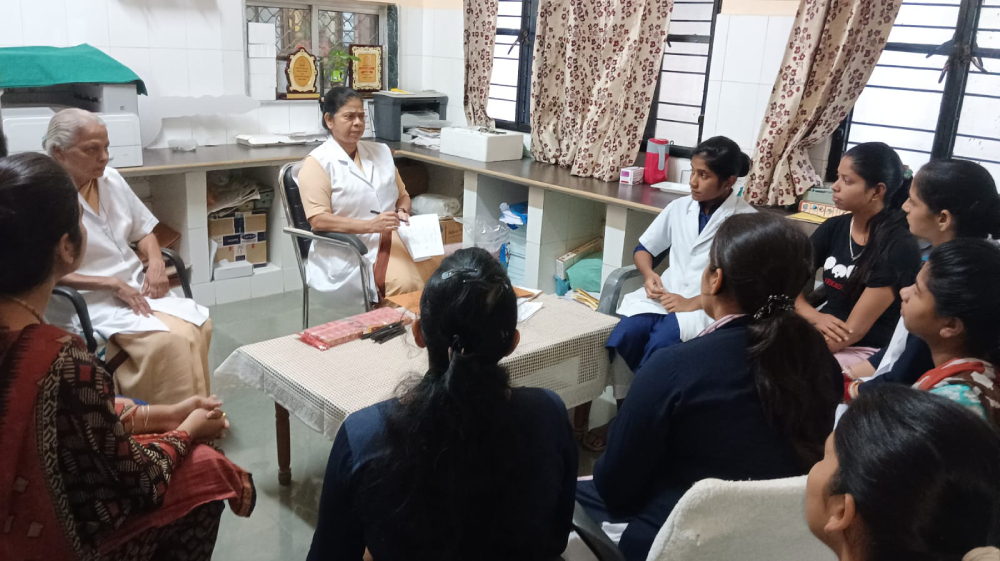
Sr. Annie Manickathan of the Sisters of Charity of Jesus and Mary briefs the St. Joseph Community Hospital staff in the Jammu-Srinagar Diocese, India. (Umar Manzoor Shah)
With assistance from a doctor friend and by managing her medical expenses, St. Joseph performed the surgery. Months later, the woman left the hospital with tears of joy.
"That," Manickathan said, "was when I realized even the smallest hospital could be a place where God heals."
Manickathan may be anchored here, but Sr. Lilly Thomas is still finding her footing in the district of Jammu.
She arrived only a month after the war ended, transferred from New Delhi's busy Holy Family Hospital, where she supervised the intensive care unit.
She admits she was hesitant to come to Jammu, known for border conflicts. "My family was not happy. They told me, 'Why do you want to go to Jammu? It is dangerous. Tell your superiors no.'"
"But when our superiors send us, we go," she said.
Thomas is not unfamiliar with border tensions. Before working in New Delhi, she was in Amritsar, where, during drone attacks from across the border, she recalls spending sleepless nights hiding bedridden sisters in corners of the convent.
"For myself, I was not afraid. But I worried about the others, like what if something happens, how will I protect them? We just prayed."
In Samba, the villagers "are very simple and warm. Not like Delhi, where everyone is busy. Here, they have time to talk, to share their joys and sorrows. That is a gift," Thomas said.
Sr. Anita Minj, from the eastern Indian state of Jharkhand, has been in Samba for eight years. Before joining the hospital, she ran a skill development project under a government program.
Advertisement
"They were just young people" who dropped out of ninth and tenth grade. "But we gathered them, trained them, disciplined them with love. Today, many are working, married, and some come back to greet me."
"When they see me, they shout from the road, 'Sister! Sister!' It feels like I have brothers and sisters everywhere," she said.
The nuns say that in the mostly Hindu district, where Christians are few, they spread the message of God through their service and presence.
"I don't believe in preaching. If, through my work, they see something divine, that is enough," Manickathan said.
Hindus account for 85% of Jammu district's 1.5 million people, according to the latest government census from 2011. Muslims and Sikhs make up 15%, while the remaining 1% accounts for others, including Christians.
"I never ask anyone to change faith. My only hope is that they see God in the way I speak, act, and care," Manickathan said.
For Thomas, it is about carrying forward the healing ministry of Jesus. "That is all I want to do — heal with my hands, my words, my presence."
And for Minj, the gospel is demonstrated through acceptance. "Here, almost no one I interact with is Christian. Yet they welcome us as sisters. That itself is proof that love is stronger than religion."
Behind calm smiles, the nuns hide their risky lifestyle.
The Samba belt has often borne the brunt of cross-border shelling. Houses crumble under mortar fire, schools double up as shelters, and lives are lost without warning.
During the four-day May war, a tit-for-tat attack between India and Pakistan, entire villages on the border were evacuated and bunkers filled with frightened families.
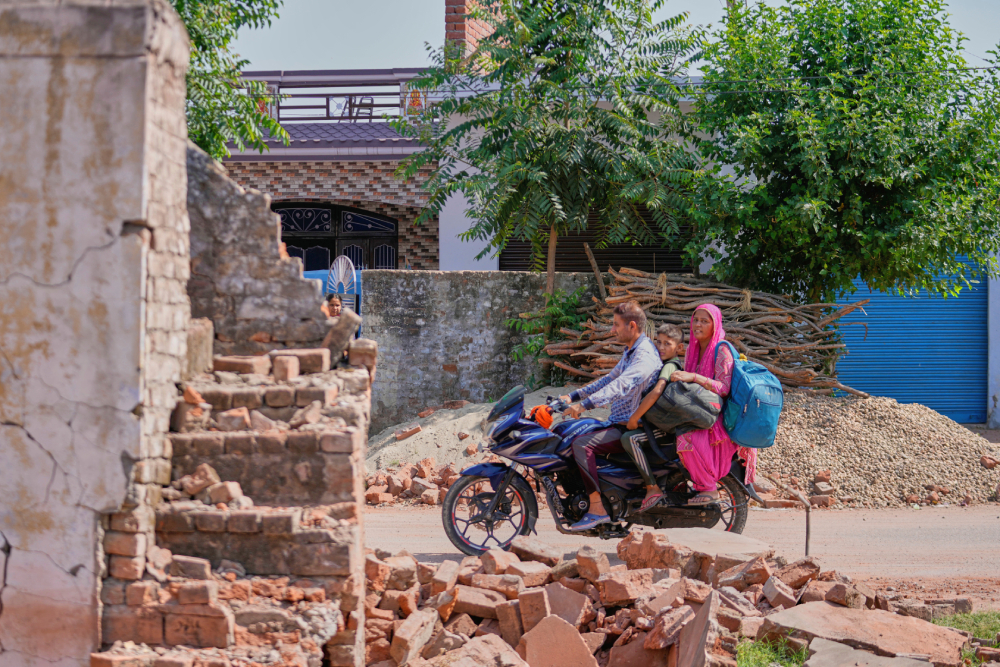
A family returns to their village along the Line of Control between India and Pakistan from a temporary shelter, in Akhnoor Sector, India, Tuesday, May 13, 2025.(AP/Channi Anand)
"We were also afraid. But leaving was never an option. If a patient knocks in the middle of the night, who will open the door?" Manickathan told GSR. "When you have given your life to God, you cannot think of yourself."
During the war, the hospital became a refuge. Women carried babies wrapped in tattered shawls and men limped in with shrapnel wounds. Medicines were scarce, power lines snapped — yet the nuns refused to shut their doors.
"We stayed awake many nights. The sound of bombs was very near. Still, if someone came bleeding, we could not say no. Each night we prayed to see the next morning," Minj said.
"If we rely only on our power and human instinct, we would run away. But when you remember why you have come, fear does not win," Thomas added.
In a region where religion-based social divisions often exist, the nuns are quietly dissolving boundaries as Hindus, Muslims and Sikhs line up outside the Catholic hospital with equal trust.
"They call us didi or sister," said Minj.
"No one asks what our religion is. In pain, everyone is the same," Manickathan said.
One village woman, whose child was saved during a difficult delivery, often visits to show her gratitude. Another, once bedridden, now walks miles just to sit and talk with the sisters.
"Their blessings are our wealth," said Manickathan.





